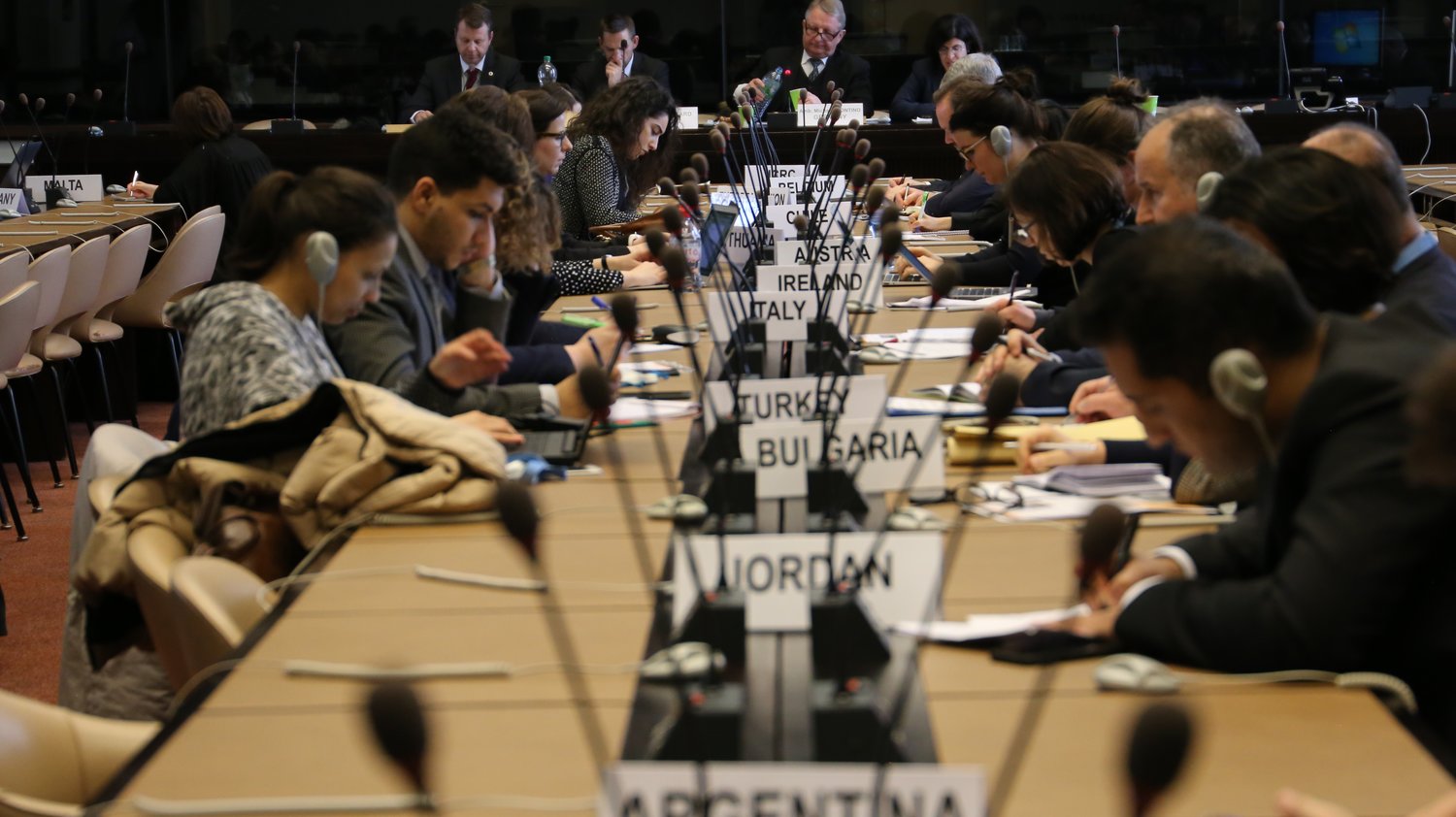
More comprehensive and coherent responses are needed to address today’s interconnected challenges, as shown by the 2030 Agenda for Sustainable Development and the sustaining peace agenda. Strong alignment with these larger efforts is essential for accelerating progress toward these broader objectives while also maximising the impact, effectiveness, and sustainability of explosive ordnance risk reduction programmes.
The GICHD's policy work strengthens the connection between explosive ordnance risk reduction and broader agendas, stimulating reflections and influencing the sector’s response to a constantly changing policy and operational landscape. The extent and complexity of contamination in current conflicts and resulting challenges to humanitarian access and peace and reconstruction efforts continue to be at the core of the Centre’s policy work, as do the growing threats posed by new contamination, the use of explosive ordnance by non-State actors, and the growing use of Improvised Explosive Devices (IEDs).
This global context has renewed calls for greater coherence and complementarity of efforts across the humanitarian, development, and peace nexus to ensure better long-term outcomes for affected communities.
The GICHD relies on strong partnerships to produce innovative and evidence-based research strengthening these linkages, highlighting the sector’s broader outcomes, and exploring how joint efforts can enhance positive peace dividends and support national sustainable development objectives.
This policy work is reflected in the GICHD Strategy 2023-2026, contributing to strategy outcome 1 (multilateral processes are informed by evidence and supported by expert advice) and strategy outcome 5 (the impact of explosive ordnance risk reduction is enhanced through connections with global agendas).
Mine Action in Border Areas
This research sheds light on explosive ordnance contamination in border areas across the world. It presents an initial mapping of border contamination and considers the impact, challenges, and lessons learnt from ongoing efforts to address the issue.
Sustainable Development Goals (SDGs)
It is pivotal for the mine action sector to understand how its activities can accelerate progress across the SDGs and how they can be more coherently mainstreamed into national sustainable development efforts...
Explosive Weapons in Populated Areas
The GICHD has established a research project to characterise explosive weapons and their immediate, destructive effects on humans and structures...
Security Sector Reform
It is important that advice is not only based on IMAS, but also on guidance and expertise from the security sector reform, which applies the principles of good governance to the broader security sector...
The Environment
To ensure that environmental considerations are taken into account, it is important they are mainstreamed within the mine action sector...
Peace Mediation
Mine action addresses conflicts’ consequence by removing risks form explosive ordnance, but it can also help addressing causes of such conflicts by supporting efforts to reach ceasefire and peace agreements.
